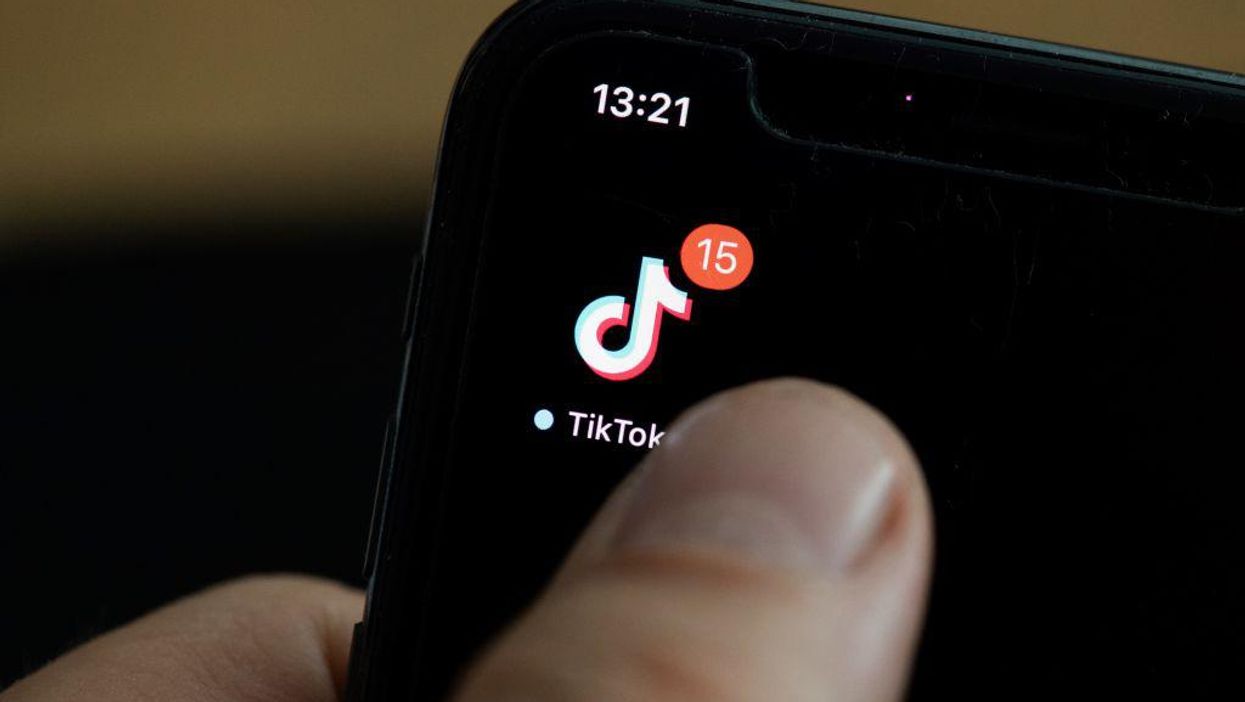
MARTIN BUREAU/AFP via Getty Images

Chinese-owned TikTok made a quiet update to its privacy policy in the United States this week. The massively popular social video app gave itself permission to collect biometric data of U.S. users, which includes faceprints and voiceprints.
"We may collect information about the images and audio that are a part of your User Content, such as identifying the objects and scenery that appear, the existence and location within an image of face and body features and attributes, the nature of the audio, and the text of the words spoken in your User Content," the new privacy policy that was introduced on Wednesday stated.
"We may collect biometric identifiers and biometric information as defined under US laws, such as faceprints and voiceprints, from your User Content," TikTok said. "Where required by law, we will seek any required permissions from you prior to any such collection."
TechCrunch reported, "Only a handful of U.S. states have biometric privacy laws, including Illinois, Washington, California, Texas and New York. If TikTok only requested consent, 'where required by law,' it could mean users in other states would not have to be informed about the data collection."
TikTok claimed they may need to "collect this information to enable special video effects, for content moderation, for demographic classification, for content and ad recommendations, and for other non-personally-identifying operations."
"In response to various questions about what data the company is now collecting on users, how it defines 'faceprints and voiceprints,' what data it might collect in the future, and what it might do with that information," a TikTok spokesperson told The Verge on Thursday, "As part of our ongoing commitment to transparency, we recently updated our Privacy Policy to provide more clarity on the information we may collect."
The current expansion of TikTok's privacy policy is especially concerning since TikTok lost a class-action lawsuit filed in the United States for collecting and sharing personal and biometric information of users without their consent. The suit alleged that the app collected "highly sensitive personal data" to track users and target ads to them. TikTok rejected the allegations but said it didn't want to spend time litigating the issue. TikTok settled the class-action lawsuit by paying out a whopping $92 million to the users.
"As part of the settlement, TikTok has agreed to avoid several behaviors that could compromise user privacy unless it specifically discloses those behaviors in its privacy policy," according to The Verge. "Those behaviors include storing biometric information, collecting GPS or clipboard data, and sending or storing US users' data outside the country."
In December 2019, TikTok Inc. and parent company ByteDance Technology Co. agreed to a $1.1 million lawsuit over alleged children's privacy allegations. The lawsuit alleged that the kid-friendly app collected children's information without their parents' consent.
"The companies compiled and disclosed personal information and viewing data, including lip-syncing videos, of children who used their Musical.ly app, and sold it to third-party advertisers," according to Bloomberg.
In February 2019, TikTok's parent company agreed to pay $5.7 million to settle a Federal Trade Commission over alleged Children's Online Privacy Protection Act violations. The company purportedly collected personal information from children illegally, according to the FTC, which added, "This is the largest civil penalty ever obtained by the Commission in a children's privacy case."
TikTok is a short-form video-sharing social media platform with nearly 100 million users in the U.S. that is especially popular with younger people – over 47% of TikTok's users are between the ages of 10-29. TikTok is owned by the Beijing-based ByteDance Ltd., one of China's biggest tech companies.
Last summer, then-President Donald Trump attempted to ban TikTok in the United States over spying concerns and the app's connection to the CCP. Last year, then-Secretary of State Mike Pompeo said using TikTok puts "your private information in the hands of the Chinese Communist Party." The Defense Department previously warned TikTok has "potential security risks associated with its use." The Transportation Security Administration, U.S. Army, and U.S. Navy prohibited TikTok from being used on government-issued phones.
"What the American people have to understand is all of the data that goes into those mobile apps that kids have so much fun with and seem so convenient, it goes right to servers in China, right to the Chinese military, the Chinese communist party, and the agencies which want to steal our intellectual property," said former White House trade adviser Peter Navarro.
In the end, the Trump administration was not able to institute a TikTok ban.